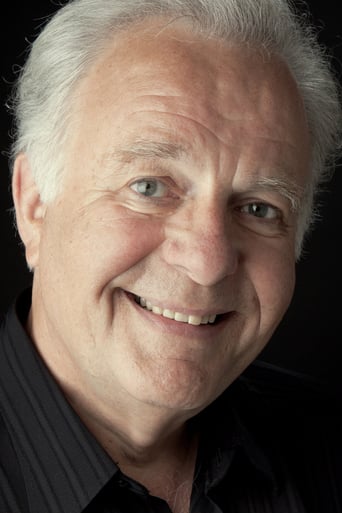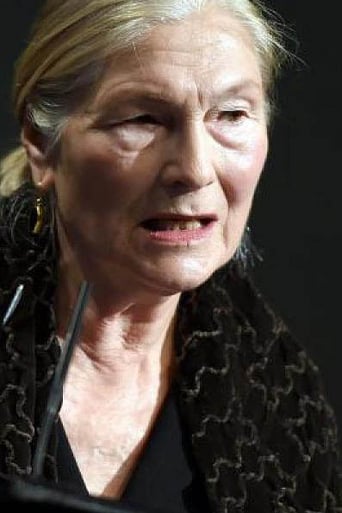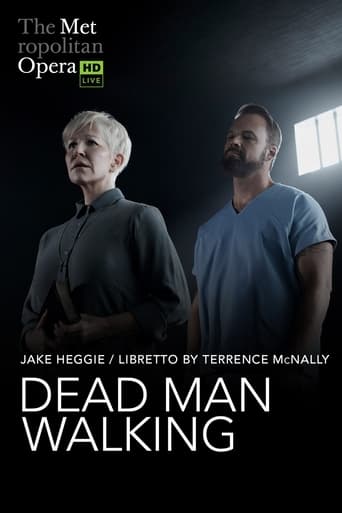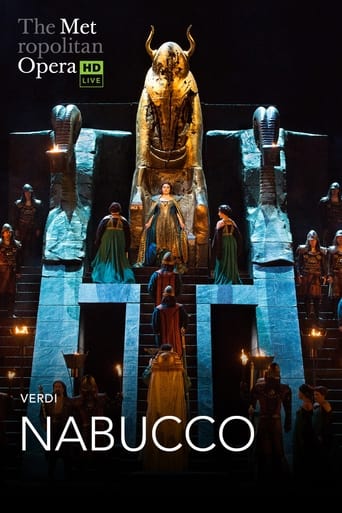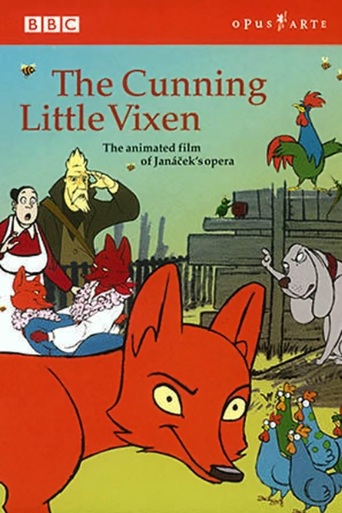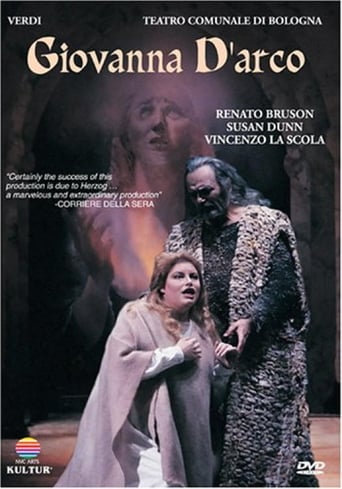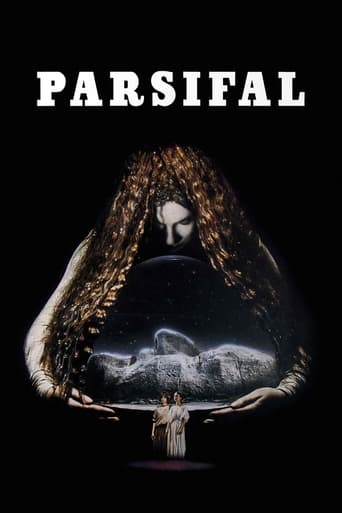

Parsifal (1982)
A psychological interpretation of the opera mixing in references to the history of Germany, Wagner’s life, German literature and philosophy. The action is centered on Wagner’s death mask. Kundry is the main character – one might read the film as the story of her redemption rather than that of Amfortas.
Watch Trailer
Cast
Similar titles

Reviews
Highly Overrated But Still Good
best movie i've ever seen.
Like the great film, it's made with a great deal of visible affection both in front of and behind the camera.
The movie's not perfect, but it sticks the landing of its message. It was engaging - thrilling at times - and I personally thought it was a great time.
This DVD broke my resin-caked heart. Hans Jurgen Syberberg holds a special place in that same sticky heart for directing the longest stoner flick every made, the massive nine-hour Hitler - Ein Film Aus Deutschland. You had to have a kitchen garbage bag chock full of weed to get through all of it, but it is sooo worth it. So I was over the moon when Syberberg had directed a movie of Wagner's Parcifal but not because of the double-dose of self importance one gets from watching both New German Cinema and opera (the more bored you are, the more important you become for sitting through it). No, I was looking forward to puppets and outrageous visuals staged and projected onto those trademark black backgrounds, with a big buttery snow globe to balance it out. Syberberg is obsessed with snow globes and the one in Parcifal is a beaut: a Shining like hedge maze, covered in snow, in the middle of which a giant silver tree with no leaves grows, a fitting symbol for the innocent child-knight's journey to self-discovery through incest. It's great to watch stoned; Rosebud meets kind bud. We also have Wagner's death mask forming the landscape, with the decapitated heads of 19th century German superstars (Marx, Goethe, Nietchze und alles) lined in a row against puppets plunging drills into huge bloody ears . Just makes you're lungs water thinking about it, huh? Well, forget it. The fatal flaw of Parcifal is the singing. Every time someone sings Syberberg parks his camera on them and waits till they finish. And since this is opera, they never finish. He will lay a close-up on you and let his foghorns yap until your t-shirt is covered in drool. Then, in the rare instances no one is singing , the screen takes off into the Syberbergian stuff of dreams. Then someone starts huffing and the whole things crashes to Earth. I don't even think Syberberg was able to get to everything he wanted to in this picture; Hell, there's only one Swastika. How can you have a Syberberg picture, especially one of an opera who's meaning was high-jacked by the Nazis, and have only one Swastika? It's like having a Cheech and Chong picture without some weirded out vehicle for them to drive around in for the whole movie. Even the sex change has nearly no impact. Instead of close-ups, the director would have done better by doing most of the songs as voice-overs, showing the scenes the singers sing about instead of the singer. Or Syberberg could have had his tab of acid and dropped it too, if he had projected film images of the singers over otherworldly scenes of wonder. But no, instead we have a big, sticky kind bud of a dope picture that is riddled with seeds the size of gorilla nuts, nuts called songs. Also, this DVD is merely a transfer of the VHS version that came out in the late Eighties. This means it's full screen and you have to deal with the Nazi -era translation of this opera, something which I'm not sure is done on purpose; it's ironic either way. This film does deserve a wide-screen treatment, though, as well as new subtitles. Mein Deutsche Grammatik Sheisshaus ist, but even twice- baked Tiskit could tell that what they were singing did match what was on screen, especially during the pop-up incest segments. The great visuals over the instrumentals rate a full nine leaves, the best you can get, but the singing parts are little but seeds and stems. So, let's average it out and call it Four Leaves: Worthwhile. Will get a small, pleasant hum from.
Back when I saw this film when it came out first run at the local art theater, it blew me away. When I tried to get into it again after locating a DVD copy, I couldn't sit through it. Most of the trappings of Syberburg's much-vaunted style have the feel of artsy gimmicks of his hot period, the late 70s and early 80s. The puppets, which are part of this scene, don't bother me half as much as the projection of images over everything on stage, and the shifting video slide show backgrounds. This technique seems to have been a solution that Syberburg believed in deeply-- and to feel he was leading the avant pack in using. But a solution to what, I'm not sure. To break up basically static tableau setups, yes. To speak to the wide-wandering emotional interior state of the films participants, certainly. But why make the film auditorium-bound in the first place if it's restless, ceaseless movement you crave? --Budget limitations? --Because you feel challenged or amused tinkering around with active/static dynamics? Either of these reasons is acceptable to me, but I don't find the fruit of this experimentation especially successful, or more, very durable.The music is great, and I DO yearn for something more eccentric or intense than the standard PBS/Met production with guys standing around bellowing in obvious crepe whiskers and stage dirt. But this film goes arty in a way that doesn't speak to many people any more, and as far as I'm concerned, it way overshoots the crazed artist mark. A little less please.
Today (1994), the "Recommendations" associated with Parsifal was: "If you like this title, we also recommend... Indiana Jones and the Temple of Doom (1984)". Well, if you liked "Indiana Jones", you may not necessarily enjoy this movie.A rather laborious staging. All those supposedly clever references about nazism, sexual ambivalence and all that are heavily pounded upon, although they do not present the slightest interest.Still, the libretto's poetry is intense and beautiful, and the music is probably superb (the soundtrack of the Brussels cinematheque copy is in tatters)
It must be assumed that those who praised this film ("the greatest filmed opera ever," didn't I read somewhere?) either don't care for opera, don't care for Wagner, or don't care about anything except their desire to appear Cultured. Either as a representation of Wagner's swan-song, or as a movie, this strikes me as an unmitigated disaster, with a leaden reading of the score matched to a tricksy, lugubrious realisation of the text.It's questionable that people with ideas as to what an opera (or, for that matter, a play, especially one by Shakespeare) is "about" should be allowed anywhere near a theatre or film studio; Syberberg, very fashionably, but without the smallest justification from Wagner's text, decided that Parsifal is "about" bisexual integration, so that the title character, in the latter stages, transmutes into a kind of beatnik babe, though one who continues to sing high tenor -- few if any of the actors in the film are the singers, and we get a double dose of Armin Jordan, the conductor, who is seen as the face (but not heard as the voice) of Amfortas, and also appears monstrously in double exposure as a kind of Batonzilla or Conductor Who Ate Monsalvat during the playing of the Good Friday music -- in which, by the way, the transcendant loveliness of nature is represented by a scattering of shopworn and flaccid crocuses stuck in ill-laid turf, an expedient which baffles me. In the theatre we sometimes have to piece out such imperfections with our thoughts, but I can't think why Syberberg couldn't splice in, for Parsifal and Gurnemanz, mountain pasture as lush as was provided for Julie Andrews in Sound of Music...The sound is hard to endure, the high voices and the trumpets in particular possessing an aural glare that adds another sort of fatigue to our impatience with the uninspired conducting and paralytic unfolding of the ritual. Someone in another review mentioned the 1951 Bayreuth recording, and Knappertsbusch, though his tempi are often very slow, had what Jordan altogether lacks, a sense of pulse, a feeling for the ebb and flow of the music -- and, after half a century, the orchestral sound in that set, in modern pressings, is still superior to this film.
